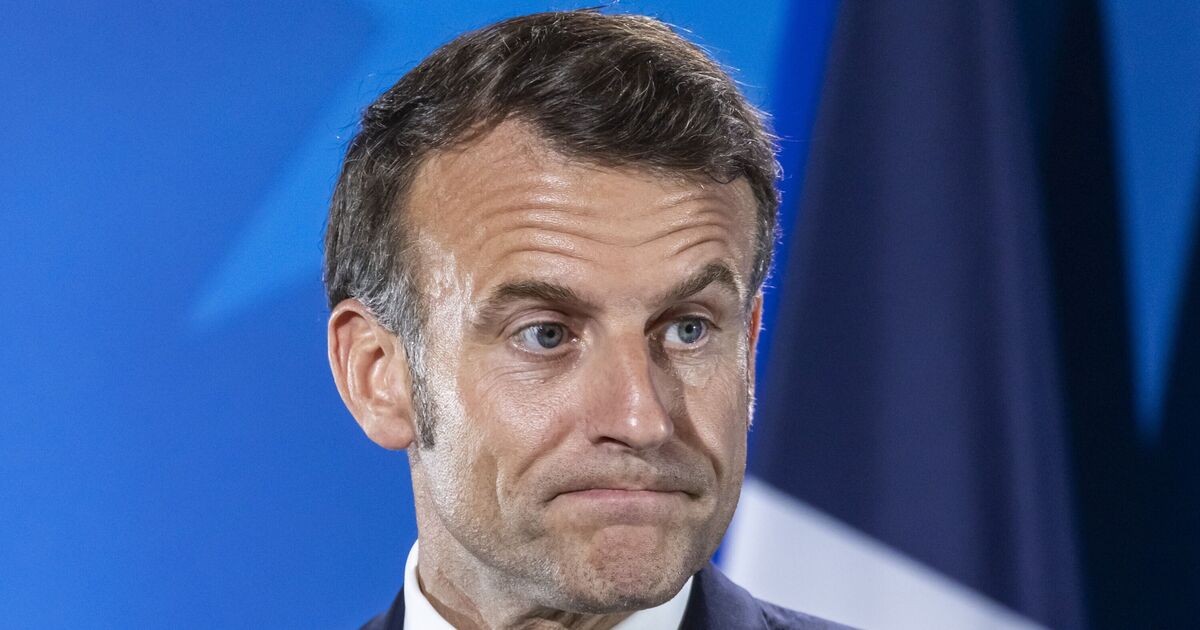The French government collapsed this week after lawmakers refused Emmanuel Macron’s plan to shave a relatively modest £3billion from the country’s vast budget. Against annual state spending of around £1.5trillion, it was hardly a radical assault on the French social model. Yet even that tiny dose of restraint was enough to bring down a prime minister and push Paris towards governing without a budget.
With debt already over 115% of GDP and deficits running at 6%, investors are starting to demand higher returns just to keep lending. And so, for the French, what began as a row over public spending has snowballed into a full-blown political crisis, with global markets watching nervously. Britain would be foolish not to take note. Our own numbers are hardly more reassuring.
This year, we will spend about £110billion purely on interest payments – more than we spend on defence and policing combined. And gilt yields, which are the rates we pay to borrow, are higher than during Liz Truss’s chaotic tenure; something Labour politicians told us was supposed to be the absolute floor of fiscal competence.
Now we have a government that pretends otherwise, puffing out its chest with talk of prudence while piling on taxes to create the illusion it has matters in hand.
So why does our debt matter? Because government debt is essentially the art of eating tomorrow’s lunch today and leaving someone else to foot the bill.
Every pound borrowed now comes with decades of interest payments attached. Money that could be used to build hospitals or invest in technology is instead funnelled into paying yesterday’s bills. There’s always the comforting fantasy of printing more cash, but that merely fuels inflation and pushes borrowing costs up further. And unfortunately, it’s only when people notice that their weekly shop has doubled in price and their savings are worth less that the reality really sinks in.
However, this problem is hardly confined to us. America is running deficits of more than two trillion dollars a year, with a debt-to-GDP ratio of about 116%. Italy and Greece, at 138 and 146% respectively, are further gone; staggering along thanks only to the indulgence of the European Central Bank. Yet it’s Japan that towers over everyone at 235%, with its economy propped up only by its famously dutiful savers.
The West as a whole is living on borrowed time, weighed down by liabilities racked up after the financial crash, the pandemic and the war in Ukraine. Politicians talk a good game about fiscal responsibility, but their basic instinct remains: borrow now and let someone else deal with it later.
That someone else will be us. Britain lacks the dollar’s status as the world’s reserve currency, so we cannot count on endless cheap credit. We lack Japan’s culture of domestic savings to fund our government. And we lack France’s ability to pretend, for just a bit longer, that all this is sustainable.
Our political class would rather argue about who can raise taxes more ‘fairly’ than admit the obvious: the state is simply living beyond its means. If we keep treating higher borrowing costs as just another expense, we will discover that they are, in fact, the fuse to an explosive.
So, what can be done? First, we need an honest reckoning with the size of government. Not a cosmetic ‘efficiency drive’, but a serious debate about what we can and cannot afford. That means trimming the bloated state, cutting benefits and saying no to new promises.
Secondly, it’s time to radically rethink how we encourage growth.
We need a simpler tax code that encourages investment, a complete slashing of regulation for businesses, and a long-term, credible plan to reduce energy bills. Because let’s face it: without stronger growth, the debt burden only gets heavier.
And lastly, we need politicians who stick to the rules. After the Glorious Revolution, Parliament’s new powers over taxation transformed England’s finances and reassured lenders. America was built on Alexander Hamilton’s insistence that debts be honoured.
Today, our “fiscal rules” are ripped up as soon as they become inconvenient. No wonder markets treat our promises with scepticism. Binding rules, one’s politicians cannot simply ignore, may sound dull, but they could save us from disaster.
Politicians will keep trying to dodge the truth because honesty is painful and maths is merciless. But crises tend to arrive in the same way Ernest Hemingway described bankruptcy: gradually, then suddenly. We are now in the gradual stage. Unless Britain wakes up, the “suddenly” will arrive with a vengeance. And by then, the only choice left will be how steep a price we’re willing to pay for decades of denial.

